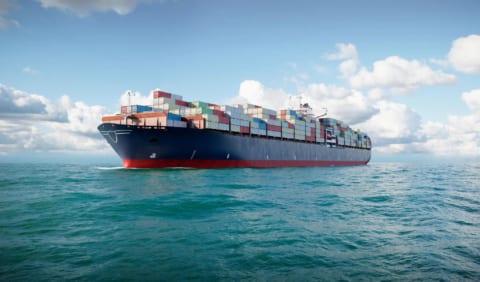Network freight operators, freight forwarders, and freight brokers are three of the many terms that are commonly mistaken to be the same within the shipping and freight industry. Many people don’t understand or acknowledge the difference between these three entities, especially when it comes to documentation and liabilities.
Many people involved in the logistics market are confused about the difference between online freight operators, freight forwarders, and freight brokers in logistics transportation. What makes them different from each other in their legal status? What are their respective risks? What is their relationship with the shipper? In this article, we will dive into the nature of Network Freight Operators, Freight Forwarders, and Freight Brokers to help you learn more about the three entities.

1. Network Freight Operators And Freight Forwarders, Freight Brokers In Legal Aspects
Regarding legal status, to begin with, in logistics transportation, network freight operators are legally contracting carriers, meanwhile, freight forwarders and freight brokers are intermediary organizations. The contracting carrier is the term that wants to sign a transportation contract with the shipper as a carrier and entrust the actual carrier to complete the transportation of cargo.
2. Network Freight Operators, Freight Forwarders, And Freight Brokers In Terms Of Risk Responsibility
In terms of risk responsibility, a network freight operator in logistics transportation, as the carrier, may bear all the responsibilities and risks in the delivery process. The freight forwarder represents the owner and bears the responsibilities and risks stipulated in the agency contract. Freight brokers only undertake the matching responsibility between the carrier and the shipper, in particular, their responsibilities and obligations will end after the matching is successful.
3. Network Freight Operators And Freight Forwarders, Freight Brokers In Terms Of The Relationship With Shippers
In terms of the relationship with the shipper, in logistics transportation, the network freight operator signs the transportation contract with the shipper, the freight forwarder signs the consignment contract with the shipper, and the freight brokers sign the intermediary contract with the shipper. Hence, their rights and obligations are different from each other. In terms of the relationship with the actual carrier, the network freight operator should sign the contract of carriage with the actual carrier, the freight forwarder should sign the contract with the actual carrier in the name of the shipper while the freight brokers and the driver-carrier should sign the intermediary contract.
Throughout the characteristics in three aspects, we believe that logistics enterprises can easily distinguish the network freight operators, freight forwarders, and freight brokers in the logistics market. You can also have a deeper comprehension of network freight: online freight operation does not include the act of providing information intermediary and transaction matching services only for shippers and actual carriers.
Source: JCTrans










